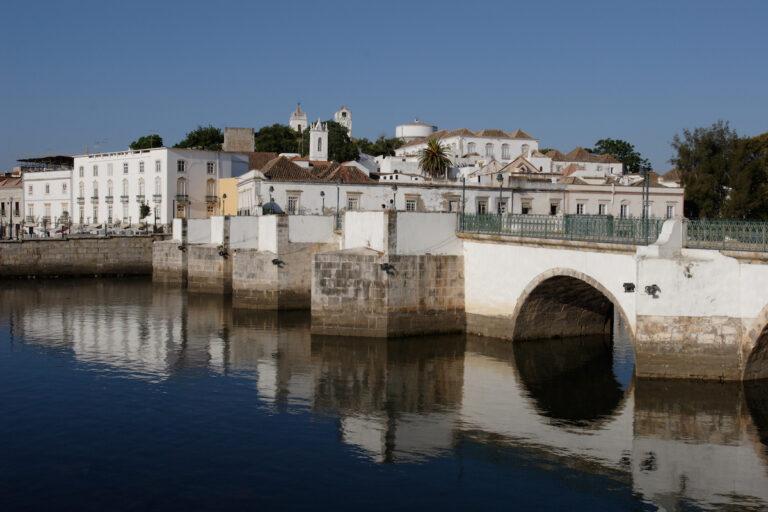Tavira, Portugal
UNESCO emblematic community of the Mediterranean Diet.
Portugal faces the Atlantic Ocean but it is deeply Mediterranean in the fundamental features of its climate, landscapes, economies, culture and ways of living.
The country is located in the very southwest of the Iberian Peninsula and due to this geo-strategic position, at a crossroad of ideas, products, and peoples between the new and the ancient worlds, Portugal assumes its own personality within the Mediterranean context.
In Portugal, the Mediterranean Diet represents an extremely important historical and heritage asset to whose preservation the country is fully committed. But far beyond that, the Mediterranean Diet is still a reference of diversified eating and sustainable production inherited from its ancestors.
Today more than ever, with the uncertainty that the climate crisis places on global futures, it is important to preserve and safeguard this legacy of sustainability. That’s why, in 2013, Portugal joined Cyprus, Croatia, Spain, Greece, Italy and Morocco in the UNESCO recognition of the Mediterranean Diet as an Intangible Cultural Heritage of Humanity, by set of skills, knowledge, rituals, symbols and traditions that the Mediterranean Diet represents as a shared heritage by the community of these 7 countries.
The Portuguese personality within the Mediterranean context is present in the different landscapes of the territory, which are a consequence of different systems of agricultural production. The Alto Douro wine region, the Ribatejo “lezíria” or Alentejo cork oak forests (“montado”) are perfect examples of this. But the Mediterranean characteristics are also expressed in cooking styles, which have been improved over the centuries.
The Portuguese Mediterranean food pattern is based on the consumption of products such as wheat, wine, olive oil, fruit, vegetables, and legumes. And in the particular case of Portugal, fishery products, such as fish, mollusks and shellfish, have a strong gastronomic importance and enrich the Mediterranean Diet as a result of the strong and ancient connection to the sea.
With the Discoveries of the 15th and 16th centuries, the agrarian heritage was enriched with the products from other continents, like tomatoes, peppers, potatoes, and beans from the Americas to cucumbers, watermelon, oranges, and rice from Asia. All of which are present in Portuguese cuisine from North to South and give to the Portuguese Mediterranean Diet unique aspects and flavors.

Why is Tavira the representative community of Portugal? Tavira was chosen by Portugal to represent the Mediterranean Diet in UNESCO for several reasons. Tavira is a historical city with heritage resulting from the presence in its territory of civilizations of Mediterranean antiquity, such as Phoenicians, Greeks, Romans, and Arabs. The Mediterranean urbanism of Tavira reveals itself in the structure of squares and alleyways, neighborly relations, the existence of dozens of churches and convents, palaces and monuments, “telhados de tesouro” (pagoda roofs) and “portas de reixa” (trellis doors), which mark the physiognomy and the aesthetics of this estuary city.

Tavira is the most Mediterranean of the Algarve’s coastal cities, not only for its climate, geography, agricultural productions and ways of life, but above all for its landscape.
The coastline includes Parque Natural da Ria Formosa (Ria Formosa Natural Park), an internationally listed and protected ecosystem, made of barrier islands and marshlands, biologically very rich. The intermediate “barrocal,” with clay and chalky soils, keeps a varied flora adapted to the climate; olive, almond carob and fig trees, family farming and “telheiros de cerâmica” (ceramic sheds) mark the landscape of these territories. Finally, the “serra” (mountain range) with the features of a forest and Mediterranean woodland, still keeps activities of community farming, livestock, rearing, apiculture, hunting, handicrafts, among others.
But, but… to survive, the Mediterranean Diet cannot just stick to tradition. Therefore, Portugal sees its heritage as a light that points to the future, seeing its enhancement and safeguarding it as a fundamental part of the reinvention (with the contributions of innovation and technology) of agricultural practices and consumption models, because the Mediterranean Diet represents a very complete model of a circular economy.
It has in its genesis the reuse of almost everything that is left, which is why we see it as an indispensable resource for the promotion of sustainability and protection of the environment, in a world of increasingly globalized abundance and with disastrous trends towards food waste.
The Mediterranean Diet is a lifestyle covering diverse aspects of life, from food production to consumption, physical activity, transmission of customary practices, respect for elements of cultural and natural heritage, caring for health and well-being.
